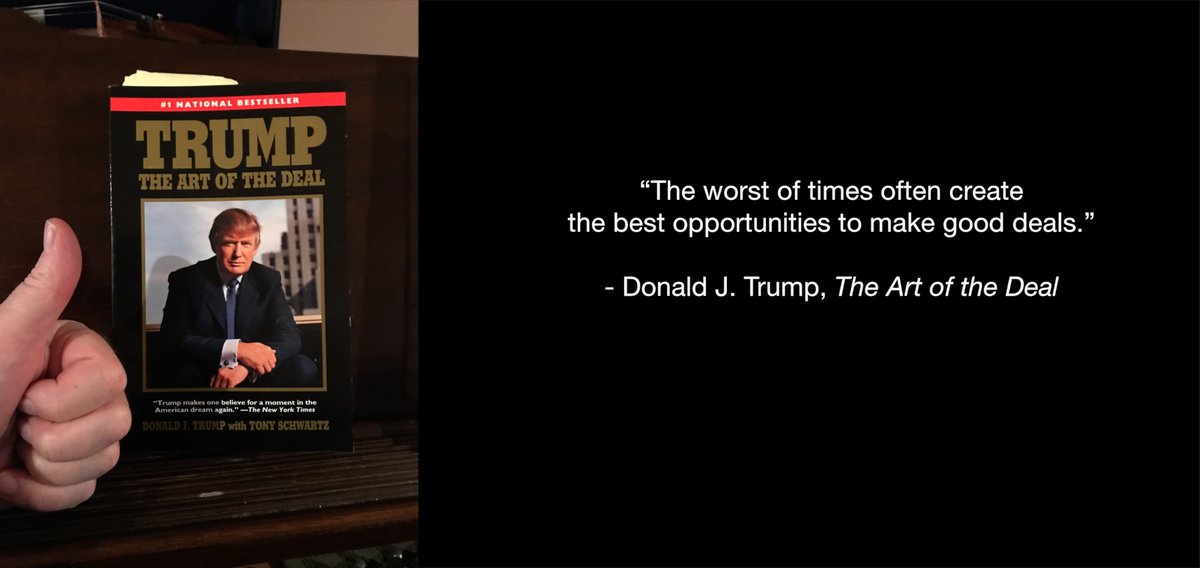2020 is going to be a year of tough bargaining at all levels.
The federal election is over, the bleak debates mere shallow memories. Anger (often fear in disguise) and resentment – even disgust – is giving way to Albertan hard-headed thinking around dining room tables, focus groups and bars. A feeling that the election was winnable by a party supporting the bedrock economy of Alberta and Canada has given way to a realization that it wasn’t. But our parliamentary democracy is safe, despite a throne speech that missed dealing with Canada’s real problems: unity and the economy.
I remember my astonishment in Ottawa at a Health Canada meeting a day after the 2015 Federal election. The Health Canada bureaucrats were almost popping bottles of champagne on the Liberal victory. High fiving, with yelps of “Canada’s back!”
“Aren’t bureaucrats meant to be apolitical,” I thought. Well they’re meant to be, but they don’t seem to be in Ottawa. And Canada’s world reputation hasn’t changed for the better, unless voting with the anti-Israel crowd in relentless pursuit of a UN Security Council seat is a measure of that.

But the country is badly divided. Quebec separatism is now a movement of extra-ordinary hypocrisy. This was formerly anxiety-provoking for the rest of Canada, generating anti-separatist love-ins and maple-leaf-waving marches. Now a disinterested shoulder shrug from a disaffected west is more likely. I was recently stunned to hear a well-educated Quebec friend denying that Quebec received anything from the west.
“We contribute to the equalization fund and receive nothing in return. The money goes elsewhere,” he said. This is what Quebecers read in their papers.
Complacent Ontarians will continue to wonder what the fuss is about in Alberta. Atlantic Canada will vote Liberal as long as the carefully calculated federal handouts continue. BC continues with its NIMBYism.
Our naïve “Wexiteers” will continue to tub-thump. A land-locked province with no tradition of independence attempting a withdrawal from Canada is a 20-year project to nowhere and is more a measure of the depth of political resentment felt here.
And life in this province is going to get tougher. Living standards in Alberta will drop. The latest life-saving cancer drugs will not be affordable. Federal Liberal party policies will dance between the puddles of climate politics and the firm dry paving stones of central Canada’s economy. They will continue to dine with the home guard and sleep with the enemy.
I attended a meeting of the Economic Education Association of Alberta the weekend of November 11. At the well-attended Red Deer meeting, there was a jaw-jutting atmosphere of let’s show ‘em what Alberta can do. Separatism was discussed on an ideological level but not on a practical level.
John Robson, National Post columnist, talked well about fixing the constitution. “The Constitution is exacerbating rather than ameliorating regional linguistic, cultural and philosophical divisions,” he said, and pointed out that no one knows how the Canadian constitution became law since it was never ratified by the people, coming into existence by “Letters Patent” from the Queen.
Bill Tufts made a good case for transferring funds from Ottawa for an Alberta Public Pension Plan.
Gord Tulk talked about the motivation-destroying equalization payments which allow the federal government to buy votes while inhibiting incentives for entrepreneurial activity. Alberta contributes some $23 billion annually to the rest of Canada, with $12-13 billion going to Quebec via the federal government.
An enthusiastic young man, Don Sharpe, talked about reigning in Alberta’s health care spending – making the usual mistake of not explaining that physicians’ incomes data include overhead costs. I tried to correct him in the question period but too many fervent politicos were in front of me.
Maxime Bernier, from Quebec – he, of The Peoples Party of Canada, gave an interesting speech emphasizing unity needs stronger provincial powers. He appealed to the audience not to follow Quebec’s separatism pathway, but to work on improving the Canadian federation. “Wexit is not a good option,” he said. He received a standing ovation.
Gerard Lucyshyn of the Frontier Centre talked about “Riparian Rights.” The Alberta Act of 1905 gives Alberta – and other provinces – rights to unimpeded access to the ocean, which today seem to have been blocked. And Franco Terrazzano, Alberta Director of the Canadian Taxpayers Federation, talked about the coming reigning in of provincial spending, eventually of $20 billion over five years. Alberta spends some $56 billion per year – of that, $21.4 billion goes to health care.
And that’s where we are now. Faces are frowning at health care spending. We have a UCP government with a clear mandate and popular support. Public sector unions are girding their loins and weaponry for a fight. The rallying cry is “front-line workers will be cut.” And unfortunately they may be right. Politicians may lay out plans, but bureaucrats and supervisors execute them and are as job-protecting as anyone else.
The seniority game in nursing will likely see the most junior (i.e., the ward nurse, not the assistant Supervisor of Handwashing) getting the heave-ho. We keep hearing about how AHS is lean and mean – and I do appreciate Verna Yiu’s leadership – but I don’t buy the stats. According to CIHI stats, admin costs are 3.6% of budget in Alberta versus an average of 4.5% in other provinces. But hang on – it depends on what defines “administration” across Canada. There’s been a useful shift of funds for admin costs outside the central AHS bureaucracy.
The Alberta Medical Association is about to embark on a critical series of negotiations with a majority government and a popular mandate. This will be the hardest bargaining of the last decade. And in some ways it may be damage control. Mr. Tyler Shandro, a lawyer and new MLA, was a surprise appointment to the health portfolio. Although inexperienced in the health area, he has served on a number of boards and I can’t believe he will want to pick a fight with a key constituency that has generally supported his party’s election victory. I hope he is open to being educated in this complex portfolio. Cynics might say his appointment will serve to deflect rotten eggs from Jason Kenney’s direction.
I’ve been involved in medical negotiations over the years and I do not envy our negotiating team. Hopefully the Trumpian dictum may still apply:
“I discovered for the first time but not the last – politicians don’t care too much what things cost. It’s not their money.”
– Donald J. Trump, Trump: The Art of the Deal
As a service to our AMA negotiating team I ploughed through The Art of the Deal by Big Don. I don’t recommend our negotiators read it unless they’re buying a tower in New York. It’s not a classic on a level with The Art of War by General Sun Tzu or Ovid’s Ars Amatoria but there are a few amusing quotes from the self-proclaimed “Master of the Deal.”
“The worst thing you can possibly do in a deal is seem desperate to make it. That makes the other guy smell blood, and then you’re dead.”
Donald J. Trump, “The Art of the Deal”
Wow! Pretty basic. But make no mistake, the UCP government has made it plain in their recent budget that by foul or fair means, there will be a 3% cut in spending annually in an attempt to achieve budget balance by 2023. And they have popular support, bearing in mind that the non-unionized population has been taking hits to their livelihood since 2014. Moody’s has cut Alberta’s credit rating to AA2 stable – meaning more expensive borrowing.
But the assault on family doctors and particularly rural physicians is not smart politics. The electorate may well have voted for better fiscal responsibility, but they did not vote for a decimation of family practices across the province, especially rural practices. Voters will not forget a betrayal like that. And here, there is very big room for terrific manoeuvring (as Mr. T. might say) by arguing firmly against the destruction of good patient care while giving way on less important points.
The AMA has put out an excellent document responding to Alberta Health’s Godfather demands (i.e., offers that may be hard to refuse). Some demands from AH are vicious while others are less so and could be looked on as giveaways.
The vicious demands include renegotiating case complexity modifiers in the fee schedule by increasing the base time before complexity modifiers can kick in. Most times you can tell within five to seven minutes whether a patient is going to be complex or simple – and this demand by AH bureaucrats has serious consequences for quality care that the politicians may not realize and cannot want to happen. Directly educate your MLA of the dangers of unintended consequences.
Some of the changes reduce coverage relating to providing complex, comprehensive care. If this is the direction, then what should be scrapped is the “Annual Care Plan by pharmacists. Here’s a recent absurdity: My Annual Care Plan involving three cardiac meds for hypertension took 20 seconds by a Rexall pharmacist, with an Andrew Scheer smile, who will bill AH over $100! Ending Good Faith Claims has a demeaning effect on the profession and the UCP. In this battle we must maintain the support of the public.
And the perennial overhead arguments? Can I pass on that?
Our negotiating committee must be familiar with research of unintended consequences from other provinces. That Trudeau travels to a NAFTA meeting in Europe without burdening his mind with exact Canadian spending as a proportion of GDP is not a model to follow. There is a lot of research showing central control of practice location has mixed results – usually detrimental. Team building is good. The Health Quality Council of Alberta released its report Crowfoot and Taber clinics case study evaluation. “Evidence shows that medical home style primary care (continuous care incentive to do a physician’s work and comprehensive service) dramatically reduces use of emergency and acute care services…”
“To get the upper hand in deals, make the other person believe you have what they secretly want.”
Donald J. Trump, “The Art of the Deal”
The UCP will not delight in seeing a migration of experienced docs from rural Alberta practice as will happen with significant changes to billing privileges, night call payments and complex modifiers.
Finally, there are many ways to negotiate. According to Big Donald, in negotiating a deal following your gut instinct is the way to go:
“I think deal-making is an ability you’re born with. It’s in the genes. It’s not about being brilliant. It does take a certain intelligence but mostly it’s about gut instincts.”
Donald J. Trump, The Art of the Deal
And there’s an alternative to gut instinct which might be called The Seinfeld approach from Seinfeld, The Opposite (TV episode 1994):
Seinfeld (to George Costanza): If every instinct you have is wrong, then the opposite would have to be right.
Costanza: Yes, I will do the opposite. I used to sit and do nothing, and regret it for the rest of the day, so now I will do the opposite.
Take your pick.
Banner photo credit: Gerd Altmann, Pixabay.com

